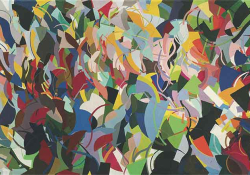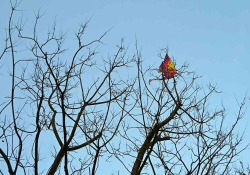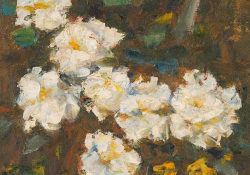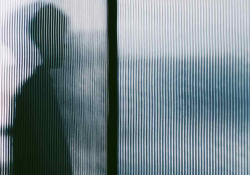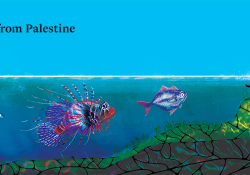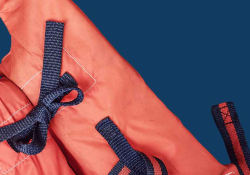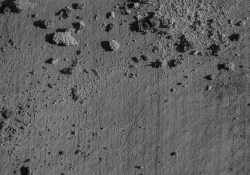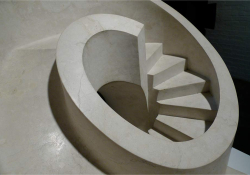Uprooted
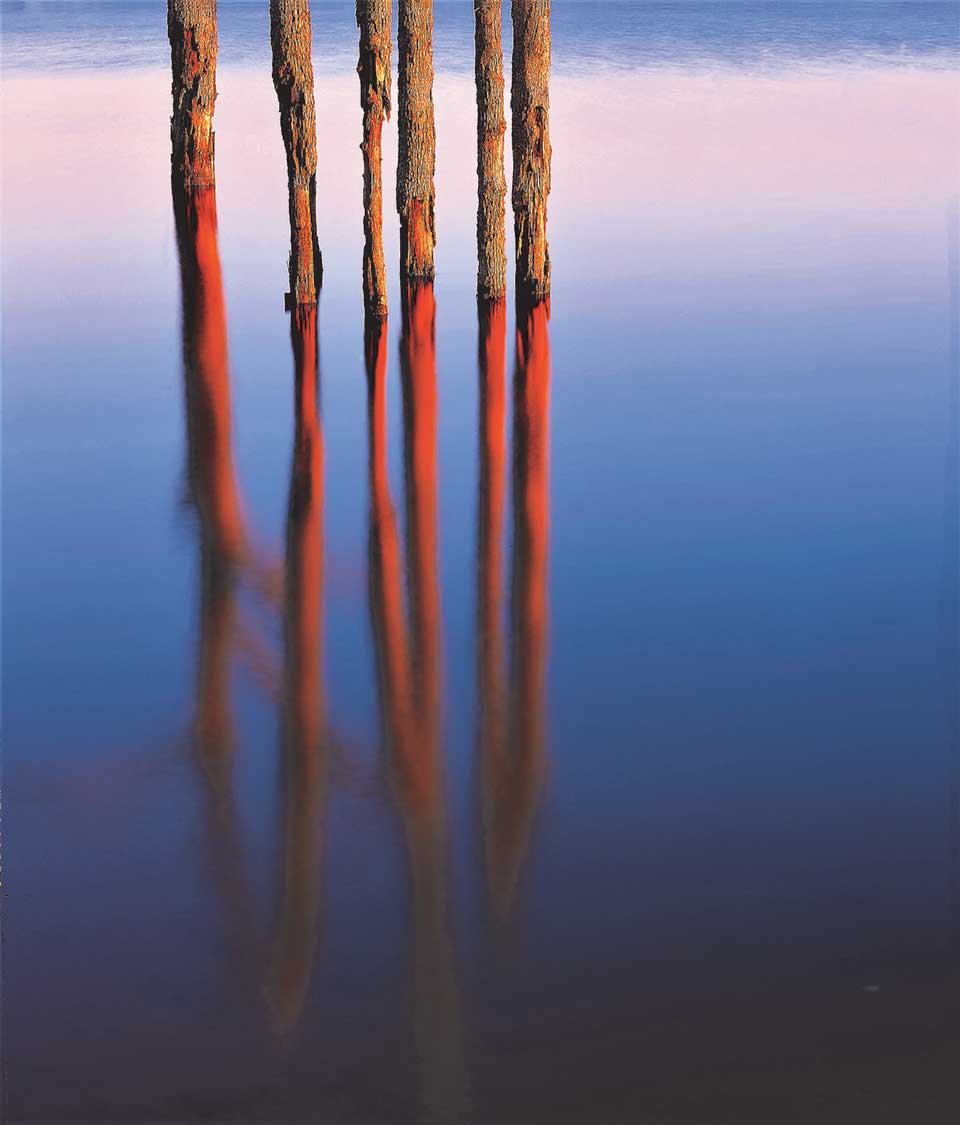
Terrifying, that ringing of the phone
then that voice, insistent, sad
“Send your aid eastward
all your uncles are now refugees”
I sighed deeply, ached for them
Then I sent my uncles clothing
I had collected for those in need
raisins we had not eaten
rusty coins with no shine or ringtone
and tears, more tears, and sighs
Since that day I gave no money to beggars
for my cousins had become refugees
* * *
My uncle went hungry, we wept for his hunger
and for a month provided him his fill
. . . rested from the pangs of conscience
then we handed him over to the vast world
and sank back into our lives
perhaps a dove’s call at daybreak would provoke our sorrows
we would think of him, drown in our tears
then rest from the pangs of conscience
The white-footed horses, who scattered them from their heights
who threw their riders off, who feeds them in their nakedness
the green hilltops, who knows them,
a proud people once lived there,
and then were lost
* * *
We met, my cousin and I
I cried out: “Haseeb , cousin, apple of my eye,
I still hold dear the memories
how close we were as children
how we raced with the nearest star,
wandered across the green hilltops, in the lush field
(little did we know how lush)
how we panicked when the sun cut loose beyond the slopes
before we had finished talking
a fragrance still lingers from the fig tree that shaded us
you were a force of life; you possessed the sun, dreams in abundance
sweet hope, faith, desire, and me . . .
Come, tell me your news, I will tell you something of my life
the sweep of my dreams, my ambitions, reflections, the places I have been
What? So distant, your gaze wandering,
impatient? Are you not my cousin, Haseeb?
Indifferently he replied, and disappeared from sight: “no, just a stranger.”
The memory died in his wake . . . we faded away
Farewell then, stranger
* * *
Yet, despite death, he was my cousin
we had lived together in our land
my cousin was the pride of our hometown
what hardened him?
He was not lifeless . . . I know him
We’d lived our hopes together
worshiped the seed of fire in our depths
Together we opened up to a great longing
grew up familiar with a bitter hatred
locked fingers together
marched with the crowds
crying out with a heartfelt faith
echoing in space:
(Britain, be not proud
do not say conquest is sweet
the nights will come upon you
shining with the light of spears)
(Britain? Those who died have died? Sleep on then, spears)
* * *
The olive trees have not borne us oil or fire
the color of their leaves has turned
The morning breeze awakens no longing in us
its desires embrace strangers in our stead
* * *
I asked the land and the sea about them
the pale dawn and the sorrowful night
A dimmed-out star guided me to them
and the remnants of the gorse they carried from the valleys
the day fearing death in their land
they became refugees.
* * *
I came to the old man to tell of my warm longing
He used to hold me dear, speak tenderly, sing to me when I was a child
(my town, so proud . . . and on a hilltop
my child so precious . . . my jasmine bud)
He taught me classical poetry
the principles of faith (how I left him in despair), and the holy Quran
He would protect me from my father’s anger when I was willful
who can touch the jasmine when the old man was there!
A little girl with her grandfather cannot have enough of his love
resting her head on a gentle breast
as he gifts her the secrets of his heart
* * *
I said: “Grandfather, greetings and peace”
I said: “Grandfather, I seek your blessings”
I said: “Grandfather, do you not know my voice
does it not echo in your memory?”
My grandfather said: “Get up and leave us
our hearing is ruptured
and the echo is a wound in the heart’s recess
I would have recounted the bitter tale
could I but speak . . . so get up and let us be
you cannot know the meaning of silence in a broken heart.”
* * *
He used to hold me dear, speak tenderly, sing to me when I was a child
My town so proud . . . on a hilltop
My town so . . . The echo, a wound in the heart’s recess
My town . . . so . . . proud . . . on a . . . hilltop
* * *
The call to prayer rang out
my grandfather’s heart is elsewhere
he will not hear it
A child cried incessantly
and found no lips to kiss away the tears
my uncle cried: “Shut the sick child up
ask our neighbor to nurse him
his mother is with child again and the child is weak
I shall not waste my days with him”
* * *
My child so precious . . . my jasmine bud
Shut the sick child up!
My child . . . so precious . . . my . . . jasmine bud
* * *
Sallow lips do not approach prayer at dawn
Sallow lips do not know the purity of kisses
they meet only in desire
and when they give seed
sallow lips cannot kiss naked children
born with no roots, no tomorrow, from a desire that knows no love.
* * *
Children of the dead . . . are we dead like them
Or orphans? Or the remnants of a sad people’s wound?
We are all of that . . .
A hoarse-sounding word, uniting us in dissonance:
“refugees.”
Translation from the Arabic



